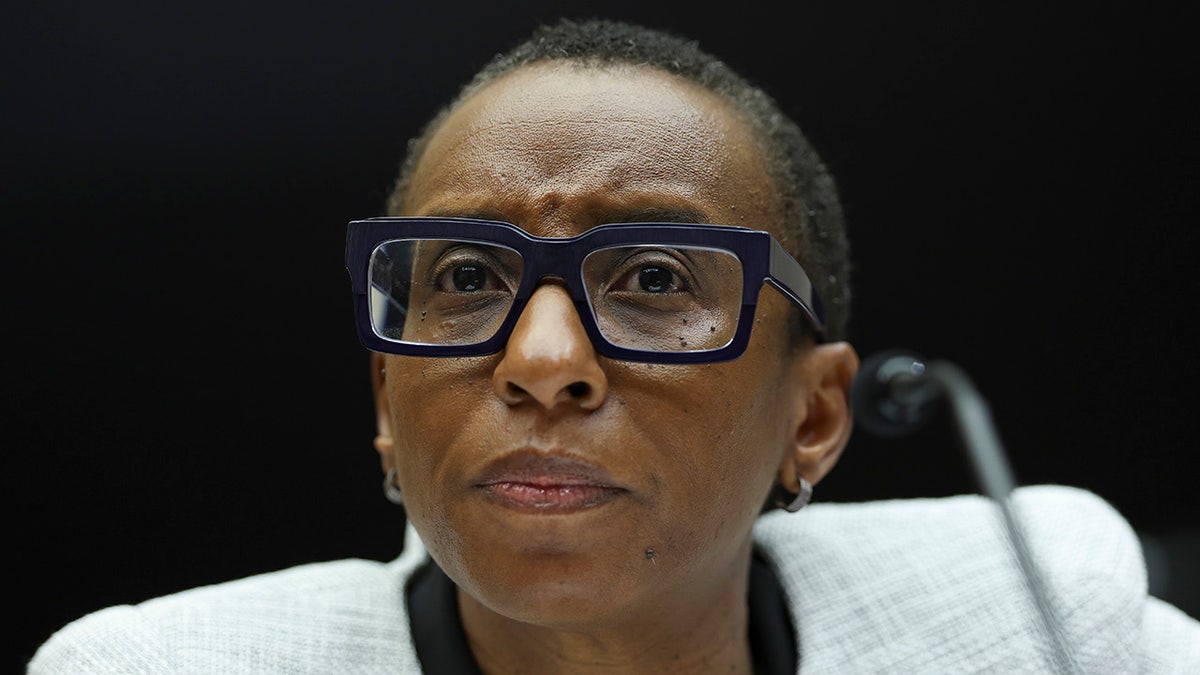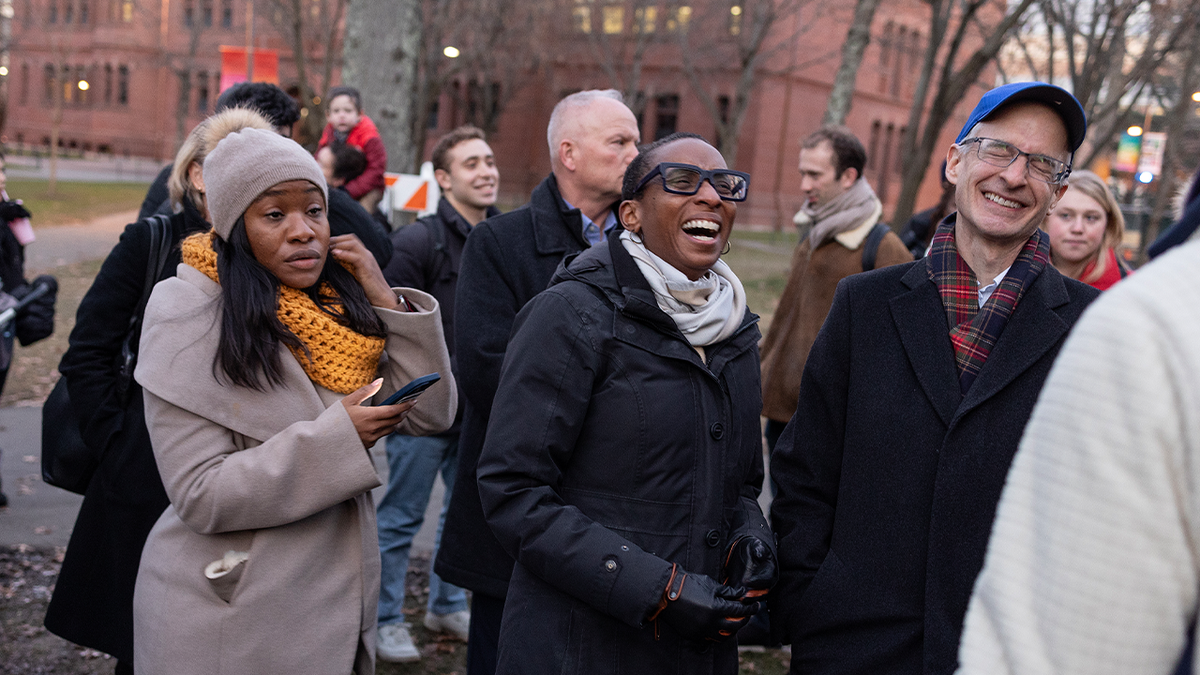Harvard's governing body believes Claudine Gay is the right leader
Fox News correspondent Bryan Llenas has the latest on controversy over the school leader's antisemitism testimony on 'America's Newsroom.'
It is not obvious that one should feel sorry for Harvard University President Claudine Gay. Her congressional testimony regarding antisemitism – in which she said that the question of whether calling for the genocide of Jews violated Harvard’s code of conduct "depends on the context" – is indefensible.
A bureaucrat trapped in the Capitol Hill headlights, Gay embarrassed herself and the university. Of course, she also dodged accountability when the Harvard Corporation gave her a pass both for that statement and a doctoral dissertation that bordered on plagiarism.
Why then does she merit a shred of sympathy? Because there is every reason to conclude that she was hired for the wrong reasons and not fired for the same wrong reasons.

Harvard President Claudine Gay (Kevin Dietsch/Getty Images)
Those, of course, center on identity politics. Harvard is keen to point to her as the first African American woman to service as president in its nearly 400-year history.
THERE'S AT LEAST ONE UNIVERSITY THAT STANDS WITH ISRAEL
But who would really want that to be one’s key qualification – or the reason it’s so difficult to be fired?
Yet there’s a strong case to be made that identity politics was central to Gay’s hiring. Her strikingly thin pre-presidency publication record includes only a handful (nine) of journal articles. Her Oxford University Press book "Outsiders No More: Models of Immigrant Political Incorporation" has four co-authors. It is easy to wonder whether, were her work not to focus mainly on the politics of race and gender, she would get tenure in a serious university government department.
Of course, she has to know this. Yet, who would want such non-merit based "qualifications" to be the basis of one’s career? Privately, she must understand that her accomplishments are minimal. She must understand, as well, that absent identity politics, she could well have been cashiered like Penn President Liz Magill.
CAMPUS ANTISEMITISM HAS PARENTS, STUDENTS RECONSIDERING COLLEGE CHOICES
More broadly, this is the central problem with race-based affirmative action. Not what it denies Whites or Asians, but what it denies its supposed beneficiaries: honest criticism, advancement or failure based on accomplishment or its lack. In other words, agency with all its complications, as my American Enterprise Institute colleague Ian Rowe likes to emphasize.
Psychologists have actually diagnosed the damage of what they call "imposter syndrome" – the fear that one does not deserve one’s professional success. As I’ve noted in City Journal, the website called DiversityInc warns that this syndrome, can "take a heavy toll on people of color, particularly African-Americans."

Harvard President Claudine Gay attends a menorah lighting ceremony on Dec. 13, 2023, in Harvard Yard, Cambridge, Massachusetts. (Andrew Lichtenstein/Corbis via Getty Images)
A paper from the Center for Community Solutions examines "the devaluation of oneself: dealing with imposter syndrome in the Black community." A Maryville University paper explores "Imposter syndrome from a Black perspective."
ANTISEMITISM IS A HORRIBLE EVIL THAT WE MUST FIGHT
Perhaps most relevant for President Gay is a Harvard Business Review essay that focuses on imposter syndrome as it affects Black women.
In Gay’s case, the situation is even more complicated. She has risen at least in part on the basis of a program meant to correct for disadvantage – when she herself is the daughter of Haitian immigrant professionals (her father an engineer, her mother a nurse) and she attended Exeter, Princeton and Stanford.
It’s useful to compare her situation to that of one of her leading Harvard critics, former university President Lawrence Summers. There was little, if any, mention at the time of his appointment that he was the first Jewish president of Harvard, a school which had infamously set quotas on the number of Jewish students in the 1920s. (His predecessor Neil Rudenstine had Jewish roots but was raised as a Catholic.)
CLICK HERE FOR MORE FOX NEWS OPINION
Certainly his Jewishness offered him no protection when he was forced to resign in the wake of his raising the question whether there might be fewer women in STEM fields because of genetic predisposition. An uncomfortable question, to be sure, but certainly not one that should be out of bounds for academic research. The answer, after all, could be no.
But in contrast to Gay, Summers was, in a way, lucky: he was afforded the benefit of honest, albeit misguided, criticism. He rose, and fell, on what were viewed as his merits.
CLICK HERE TO GET THE FOX NEWS APP
Perhaps there is, indeed, something in Claudine Gay’s leadership quality that merits her not being dismissed for reasons that would likely have sunk someone without the protection of identity politics. If so, she can take comfort in knowing that.
More likely, however, in the privacy of her own thoughts, she knows that’s not why she’s been kept on – and must suffer the self-doubt that brings with it. So, yes, I feel sorry for her.












































